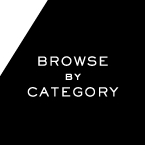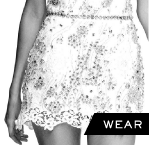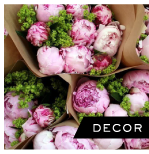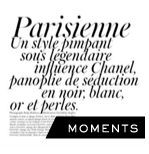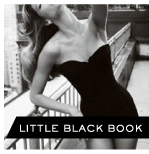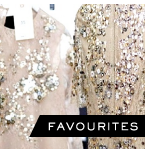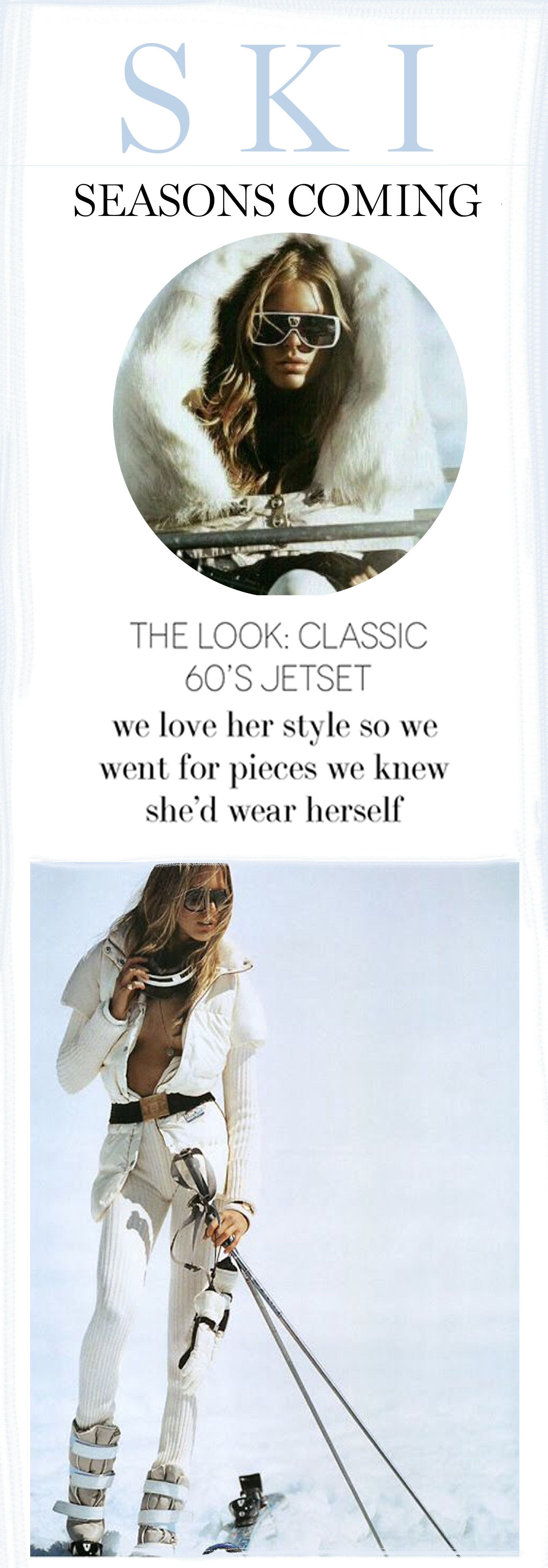OL: What do you like? BB: Nature. The mystery of the extraordinary phenomena it produces. Those tiny miracles like the blooming of a flower, the dance of a bee, the immensity of the ocean. And animals, of course. For their purity, their courage and their loyalty. They don’t get the recognition that humans should give them. I’m hooked when I sense an ability to love and to marvel in another person who can empathise with the world. I don’t like indifference.
The Beatles adored her. For Andy Warhol, she was the first modern woman. For me, Brigitte is so much more than her sublime beauty. After reading this interview, she has a purity & aura that is extremely rare. Her gratitude, passion for animals and capacity for amour propre, without the need or wish to be labelled a celebrity is why I think Bardot is a living Icon.
Go see: “Bardot Intime”an exhibition by Sveena Vigeveno, September 30 to November 8 at Galerie de l’Europe, 55 rue de Seine, 75006 Paris
THE INTERVIEW
by Olivier Lalanne for Vogue Hommes FR
It is over 40 years since the world’s most beautiful woman made her last appearance in a film and hid her easy-going sex appeal behind the wattle fence of La Madrague, a fisherman’s cottage by a Mediterranean beach in Saint Tropez. Probably as famous as Notre Dame de Paris or the Tower of Pisa, La Madrague is home to BB, from where she organises her fight against cruelty to animals. She would have liked to extinguish all the sufferings of the world in her total empathy with all that lives and breathes, and suffers. To them she has chosen to devote her life.
She goes out very little, talks to the media only to win the general public over to her cause, and despite a few misplaced public utterances, enjoys the sort of aura we will never see again.
At the end of a eucalyptus-shaded track, surrounded by bougainvillea, cacti, and tall reeds, behind her blue shutters and surrounded by her dogs and cats, her pigs, her mare Gitane, her donkey Bonhomme, and her geese, worthy successors to their famous Capitoline forbears, we imagine Brigitte Bardot. There’s nothing else to do, as access to her Noah’s Ark is forbidden. BB is at home to no-one anymore. Yet she accepted the idea of a short conversation with Vogue Hommes International. Her secretary said that BB would call us. An appointment was made. Three days later, the phone rings, and, at the other end of the line…
Brigitte Bardot: Hello Olivier, this is Brigitte. Am I on time?
Olivier Lalanne: Right on time. Thank you, Brigitte. Is it all right if I call you Brigitte?
B.B.: Of course. What else would you call me?
O.L.: I don’t know… Mademoiselle Bardot?
B.B.: Don’t be silly! What an idea!
O.L.: I asked to speak to you, Brigitte, because we are devoting this issue of Vogue Hommes International to a universal theme: A Man and a Woman. For millions of men, you embodied Woman. A woman who had men burning with desire and admiration.
B.B.: You, know, apart from being extraordinarily involved with animals, there’s nothing admirable about me.
O.L.: That’s what you say…
B.B.: And I sincerely think it. I know myself too well to appreciate myself. And at any rate, I run a mile from any talk about me, near or far.
O.L.: I’d like to start by talking about films with you.
B.B.: Oh no, what a bore! I haven’t set foot in a cinema for years. And I haven’t made any films, either.
O.L.: We’ll talk about other things afterwards, I promise.
B.B.: Go ahead, then.
O.L.: At the last Cannes Film Festival, Jean-Louis Trintignant, whom you were close to …
B.B.: I wasn’t close to Jean-Louis, I adored him.
O.L.: … Jean-Louis Trintignant, whom you adored, deeply moved the Croisette with his performance in Michael Haneke’s Love. Like you, he lives out of the spotlight, on the margins of cinema, and he successfully and movingly portrayed an old man confronted with sickness, death and the great wall of absence. What does that inspire in you?
B.B.: Courage. After he gave such a magnificent image of himself, and god knows how physically magnificent he was… after he retired with a remarkable career behind him, he was courageous enough to come back and play a character his own age, straight, and without cheating. That’s not easy for an actor. Actors always want to look young. Jean-Louis doesn’t care. As a result, we’re talking about him again. He’s exceptional. Rare. I find that fantastic, that’s all.
O.L.: When you see the triumphant welcome he received from the critics, and his emotion when the film was awarded the Palme d’Or, doesn’t that get you wanting to return to the cinema?
B.B.: Certainly not. I quit the films when I was 38 because I’d had it up to here, so I have no desire to go back at the age of 77.
O.L.: That’s what I mean: it’ll be 40 years next year since you last worked on a film set. Do you remember exactly when you decided to give it all up?
B.B.: Perfectly. We were shooting a medieval romp set in Périgord, calledColinot trousse-chemise, by Nina Companeez. One day, I saw an old lady holding a little goat on a lead. Obviously, I went up to her to stroke the kid, and there and then, the old lady told me that she hoped we would have finished the scene that evening, because the following Sunday, the kid was going to be spit-roasted to celebrate her grandson’s First Communion. I was terribly upset and I bought the kid off her. I put it in my trailer and, that evening, I went back to my 5-star hotel in Sarlat with my little goat. If they hadn’t let me in, I would have slept outside with her. Nobody dared say anything to me. So, of course, she and a little dog I had just adopted all slept together, in my bed.
O.L.: How was that little kid responsible for the sudden halt to the career of one of the biggest stars of stage and screen?
B.B.: I’ve always loved and protected animals. When I was little, I wanted to live on a farm. The story of the little goat made me very angry about people’s cruelty to animals. How could anybody eat such an adorable little animal? Along with that, I could see myself in my dressing room with my pointy headdresses and frilly petticoats – this incredible gear. And I wondered what I thought I was doing, got up like that. Was that how I was going to grow old in the cinema? Just as I was starting to feel that I really wanted to throw it all up, along comes that little goat. During dinner with the film crew, I told them that this film would be my last. There were some reporters from France Soir eating with us. They were all wondering if I hadn’t had too much to drink. They must have thought that I’d get over it. But it was over. Really over.
O.L.: You’ve said in interviews that you couldn’t act for toffee…
B.B.: What I meant was that I wasn’t good technically. I wasn’t acting, Iwas the person I was embodying. When it was a comedy, I was in a fun mood, perky. But a dramatic role just wiped me out. When I was shootingThe Truth, Clouzot was so good at persuading me that I was this loose woman, this tragic character, that I ended up believing it. I became Dominique. So much so, that a few months later I wanted to commit suicide myself.
O.L.: What was your relationship with Jean-Luc Godard? When Contemptwas released, a famous critic wrote that the empathy between a director and his lead actress had never been so obvious on screen.
B.B.: Empathy my foot! It’s common knowledge that he got on my nerves. I thought he looked stupid wearing that hat all the time. We were always having to make up dialogue at the last minute. There was no plot. It was a real free-for-all. Not to mention the hordes of paparazzi following me about. But it turned into a great film, and so much the better. But no-one could say that it was thanks to any empathy between Godard and me.
O.L.: What do you think of Contempt?
B.B.: Nothing.
O.L.: I read somewhere that you turned down the lead in The Thomas Crown Affair.
B.B.: Yes, that’s right.
O.L.: Why?
B.B.: I’ve no idea (long silence). I don’t know. You know, me, I have to stay on my home turf, places I know, surrounded by people I know, in places that are familiar to me. I just couldn’t up sticks and go to the US. Not even for a king’s ransom. It just wasn’t possible.

O.L.: François Truffaut was another missed meeting. Weren’t you supposed to have a role in Mississippi Mermaid?
B.B.: I had loved the original novel by William Irish, about a devouring passion set in 1880. I thought it was a pity that Truffaut set the film in the present. It didn’t make sense. But it’s true that I was dying to make the film. He finally chose Catherine [Deneuve], and that was that. I didn’t make a song and dance about it.
O.L.: Let’s talk about the origins of Bardolatry. What does And God Created Woman mean for you?
B.B.: It was the first film where I was really myself. Before that, I was systematically tizzied up, beehived, corseted and bullied. I was fed up. Juliette, the lead, was me. Vadim had given me carte blanche and the freedom to do my own hair and make-up, and to dress, walk, and dance how I wanted to. Even that famous scene where I dance the mambo was inspired by me. We were at a party in Cannes, with Vadim and the producer, Raoul Lévy. All the people were uptight and I was dancing. I was literally in a trance, and was dousing myself in champagne because I was dying of heat. They came up with idea of adapting that scene to that preposterous plot, which was pretty ordinary, really. And then the film was all about Saint-Tropez. We were shooting in a place I knew, where I had spent time as a teenager with my parents. I also used to go there a lot with Vadim. I was crazy about Saint-Tropez, the South of France. I loved to dance, to get the men worked up, a bit. And I did it so much that I went off with Jean-Louis Trintignant…
O.L.: It was also after making that film that you were made into a symbol of women’s lib and sexual freedom.
B.B.: That’s a load of absolute rubbish. I don’t know where they got that from. I don’t give a hoot for women’s lib. And they know where they can put it. As for sexual freedom, women didn’t wait for me to come along to liberate themselves. It’s a total misunderstanding! I never behaved scandalously. I was simply the person I wanted to be. Natural, genuine, and honest.
O.L.: Were you in love with the way people looked at you?
B.B.: There wasn’t just kindness or desire in those looks, you know. There was a lot of hatred, too, and threats… And then again, the way all those men looked at me, or if nobody looks at me, it makes no difference. What did it all add up to? Nothing at all. I didn’t give a damn, at bottom. It didn’t do anything special for me.
O.L.: Which men counted most for you?
B.B.: I can’t answer that. We’d be here all day. It’s a very long list and every one of them gave me a lot. I am very grateful to the men who shared some of their life with me.
O.L.: Were you ready to do anything for love?
B.B.: Except for killing someone, I think I would have been up for anything. That’s all I live for. I missed out on a lot of things I should have done because I didn’t want to leave the man I was in love with. I’ve wanted to die more than once because men have left me. It was my oxygen, I suppose. I need to live on a high of love.
O.L.: Did you go into films for love?
B.B.: No, that was to get the hell away from my parents. To earn my independence. And before becoming famous, I made some really trashy films. But they got me away from home and helped me to discover something that looked like freedom. It was all the more exciting because I had had a very strict upbringing. Going into films was an act of self-liberation. Later on, once I’d decided to launch myself on that career, I put my whole self into it. It was the basis of my life. When I decide to do something, I try to do it as well as I can. I go to great lengths. It was the same thing when I stopped everything to devote myself to animal welfare: I threw myself heart and soul into it, without knowing a thing about it, without even knowing how I was going to go about it. And look where I am now. It’s fantastic, what I’ve been able to do with the Foundation. People laughed at me. They’ve said and written all sorts of rubbish. They said I was doing it to get in the news. As if. None of that has the slightest importance. And it never stopped me from fighting for what I believe in, or from being upstanding, alive, and proud.
O.L.: Françoise Sagan once said that, “Brigitte loves found men and stray dogs who put their heads on her shoulder.” What do you say to that?
B.B.: It’s very pretty. And very thoughtful. I didn’t know she had said that.
O.L.: Were you friends?
B.B.: Not what you might call friends. We were part of the same slightly crazy generation that loved freedom, Saint-Tropez, smoking, dancing, and riding in fast cars. I often used to go and see her, but we weren’t really on intimate terms. Oddly enough, I felt closer to Marguerite Yourcenar, whom I met just the once. She was a vegetarian, like me. She said that she didn’t want to “ingest the agony”. It’s a lovely phrase, and one that I’ve often used. She was fascinated by my crusade against animal cruelty. She came to see me one evening at La Madrague. It was raining, as I remember. It was early winter. At the time I was on my own, with a log fire burning and my dogs. She was drenched when she arrived and I dried her off in front of the fire. We drank champagne and talked together for hours. I told her that her Memoirs of Hadrian was too complicated for me. That I didn’t feel I had it in me to read it. Later on, she sent me a lot of other books that I loved. I’m still amazed that a woman like her would come and see me.
O.L.: What do you like?
B.B.: Nature. The mystery of the extraordinary phenomena it produces. Those tiny miracles like the blooming of a flower, the dance of a bee, the immensity of the ocean. And animals, of course. For their purity, their courage and their loyalty. They don’t get the recognition that humans should give them. I’m hooked when I sense an ability to love and to marvel in another person who can empathise with the world. I don’t like indifference.
O.L.: It’s often been said that you had an almost masculine charm about you – the self-assurance of a man and the curves of a woman…
B.B.: I’ve always done as I pleased, that’s all. And I know that I have more balls than a lot of men. They should follow my example. I’ve always assumed responsibility for what I’ve said or done. You mustn’t be afraid of who you are.
O.L.: You will always be seen as the blonde femme fatale, like Marilyn Monroe, although you’re poles apart. Did you ever meet her?
B.B.: Just the once. But you can’t compare us. She was unique. So sublime. I felt I was light years behind her.
O.L.: How did you meet?
B.B.: We were presented to the Queen of England on the same evening. It must have been in the late 1950s, at Buckingham Palace. Once again, I was all beehived up, corseted in a dress that hid my bust, and I felt very ill at ease, and nervous. Just before I was due to curtsey to the Queen, I went off to the loo to rip some tulle off my dress and free up a few wisps of hair so that I looked more like myself. And then, wham, in comes Marilyn. We found ourselves standing side-by-side in front of the mirror – she powdering her nose, and me tugging at my hair. We smiled at each other, said “hello, terminados bouclarès?”, and that was it: we never saw each other again. I’ve always admired Marilyn. There was always something little-girly about her, despite her pouting and provocative wiggle. She was very misunderstood, treated shoddily by life, and very lonely, in the final analysis.
O.L.: Are you afraid of loneliness?
B.B.: I used to be terrified of it. I couldn’t stand it. I felt lost, abandoned, ready to do the stupidest things. Today, all I want is to be left alone. And as I’m naturally meditative, it suits me down to the ground. Then again, I don’t like the world today. If it was different, perhaps I’d lead a less secluded life.
O.L.: When her secretary was once trying to get her to receive the friends she obstinately refused to see, Marlene Dietrich said, “They don’t come to see me, they come to look at me.” Can you relate to that?
B.B.: I can see what she meant. But I personally don’t give a monkey’s about all that. I am so used to people looking at me… I just don’t want them getting too intimate, that’s all. I was literally crushed by celebrity. No-one can imagine how awful it was. A nightmare. I just couldn’t live like that anymore.
O.L.: What gives you the strength to get out of bed in the morning?
B.B.: The suffering of animals. You probably know that I find walking difficult these days. I can’t go for long walks any more, or go swimming. But I’m lucky, compared to what animals suffer. The dozens of letters I receive every day testify to the horrors that animals are still being subjected to. Because of that, I feel that I can’t complain, and that gives me boundless energy.
O.L.: To illustrate this interview, we aim to publish photos of you as a young woman, since you’ve chosen not to show yourself any more, today. What do you feel when you see those images?
B.B.: I never look at them. I don’t want to dwell on the past. And if by chance I do see one, I think, “Hey, she’s pretty”, whereas back then I thought I was ugly. Absolutely mad. I used to try and make myself as pretty as I could, and even like that, I still thought I was ugly. It was really hard to go out, to show myself. I was afraid of not coming up to people’s expectations. Today, at my age, I don’t give a damn any more. I don’t want to charm. Anything or anybody.
O.L.: That sounds like a good place to stop, Brigitte.
B.B.: Do you think so? Did you enjoy our little chat?
O.L.: Yes, a lot, and thanks again for being so patient with me.
B.B.: Yes, one has to be with you. And have plenty of cigarettes… Lots of love!
















